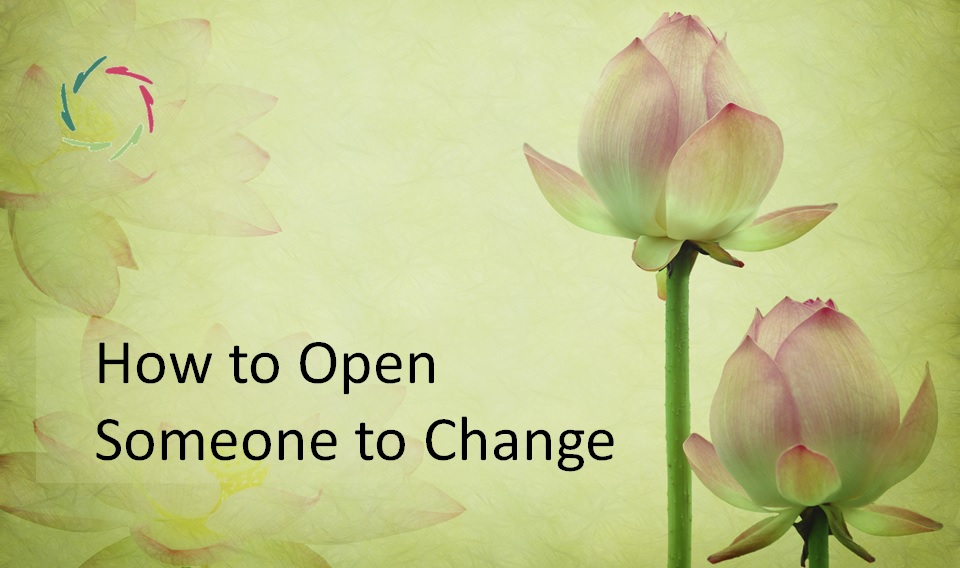How to Open Someone to Change

Trying to ‘open’ someone to a change of view or behavior, is a common situation. It’s that of a coach with a coachee, or of you perhaps, wanting to ‘open’ someone to another view.
People have a natural resistance to be changed.
Quite rightly so. There is a natural tendency towards survival as an individual. For most animals, this mainly means staying on track with a relatively stable set of mental instruments, say: instincts. Humans have a special niche in mental flexibility, overcoming instincts to a huge degree. However, our natural willingness to change may not always have been caching up with our ability.
Nature is not an engineer. Natural evolution is indeed… an evolution, not a starting all over again.
In many cases, this resistance is OK.
Otherwise we risk chaos and a lot of energy expenditure for no good cause. So, this ‘not caching up’ may partly be on purpose.
Meanwhile, nature changes continuously.
All organisms grow all the time, one way or another. This is also a change but into a natural direction. Little trees become big trees. Little children become adults. Adults ‘grow’ too, learning new things. Even dying can be seen as a way of growing.
So, we have a resistance to be changed and an urge to grow. Nice! These together make for an easy-to-grasp solution:
‘Opening’ someone = searching for his natural way to grow.
Too easy to be true? No.
Too easy to be that easy? Yes. The difficulty lies in the searching, the finding and the implementing of the second part: towards ’natural way to grow.’ What this means in a concrete situation is very dependent on that situation, including the person to be changed, the changer, and so many other things.
But at least this is a direction.
In order to open a person – at least in a durable and human way – you need to be open to that person. Right: YOU need to be open first.
This is of course what AURELIS coaching is about: letting yourself – as coach – be open without changing yourself into a different person. Anyway, the latter process would quickly run into resistance by YOU.
As a coach, you grow. This is very interesting, time and again. Is it easy? No. Should it be so?
Dear reader, I do not want to change you.
I would be contradicting this very text.
What I would like, is to invite you to invite yourself to think about this direction, to feel it, to let yourself be open to this. That’s all. No big solutions to big problems today.
In the meantime, what I’m seeing is:
Generally speaking, there is a lot of trying to change someone but coming to naught.
There is also a lot of trying to change someone and succeeding a short while, then coming to naught.
There is a lot of changing someone indeed but coming to dire side effects, even if not readily apparent.
Only growth can truly heal: becoming whole (again).


